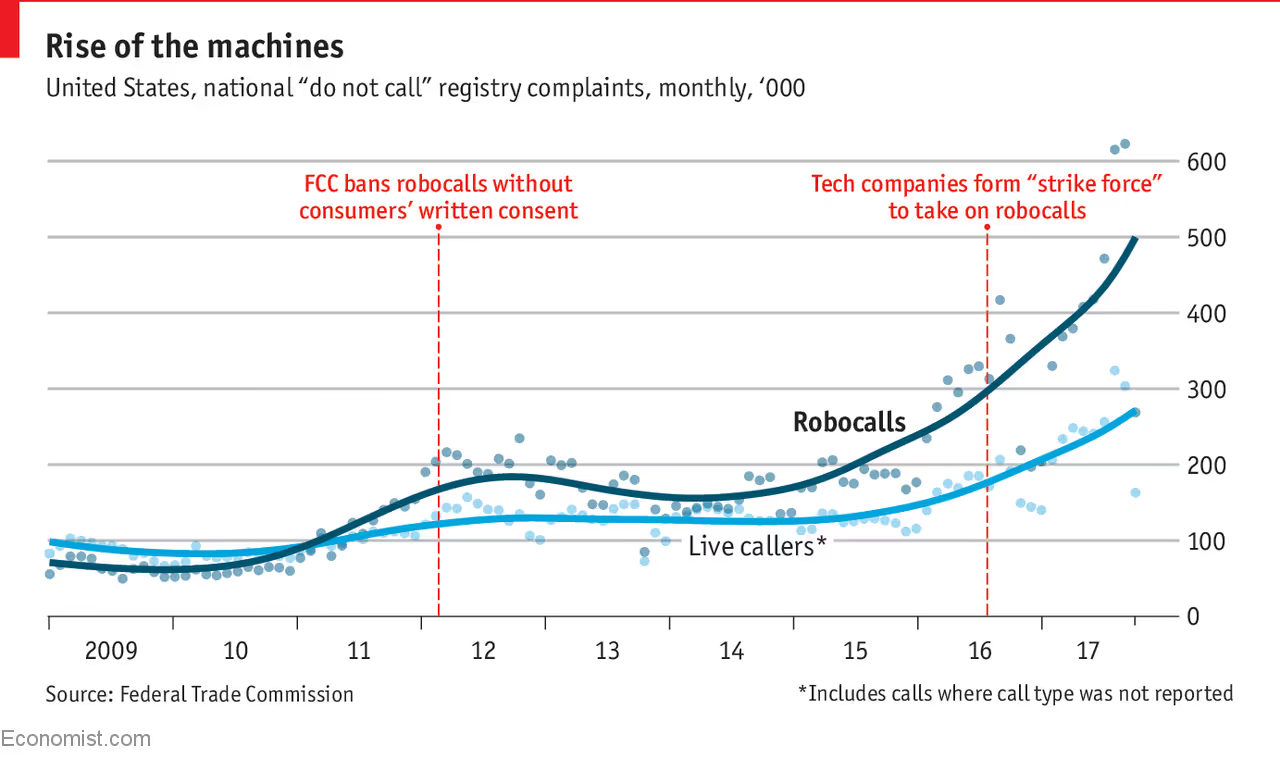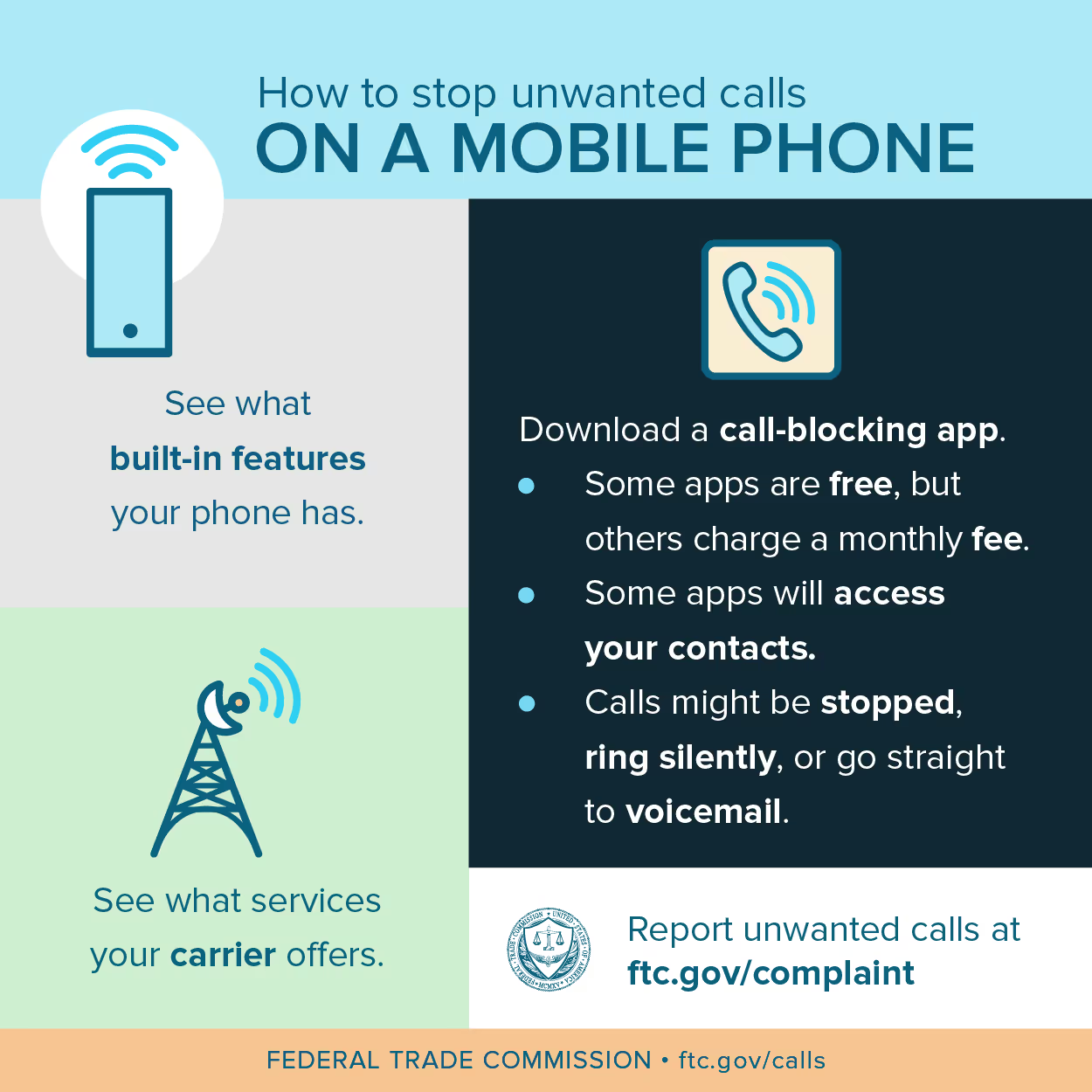How to Stop Unwanted Robocalls on Your Cell Phone & Landline
How to Stop Unwanted Robocalls on Your Cell Phone & Landline

For small businesses, robocalls are more than just a nuisance, the calls are becoming an actual (and unnecessary) hit on your business’ revenue.
Call analytics company Marchex estimates that small businesses lose nearly 20 million hours (and half a billion dollars) from lost productivity caused by handling unwanted phone calls. And, in 2017 alone, phony calls cost U.S. small businesses $9.5 billion.
Not only are small business owners forced to answer unwanted calls, but an increase in robocalls has an impact on their ability to reach their customers too. As spam calling continues to grow, small business owners find they are having a more difficult time reaching their customers and clients who also work to block robocalls.

Small business owners lose money and productivity because they are forced to:
- Leave more messages
- Call clients back multiple times
- Find alternate ways to reach people who won’t answer calls because they fear spammers
Read on to learn what your business can do to stop robocalls from interfering with your productivity, customer relationships, and bottom line.
Four Ways to Stop Robocalls to From Affecting Your Business
Business-to-business robocalls calls have far fewer regulations than consumer robocalls. Specifically, consumers can put their names on the Federal Communications Commission’s (FCC) National Do Not Call Registry, as a way to opt-out of telemarketing calls. However, sales solicitors don’t need to consider the Do Not Call provisions when calling a business line.
That means, getting around robocalls is more of a trick for businesses than it is consumers. Still, there are a handful of ways small business owners can stop robocalls.
1. Educate your staff and clients
When your business receives spam calls, there are techniques you can use to get the callers to stop calling in the future. Make sure to train your entire staff on simple techniques that can help decrease the calls coming into your business:
- Hang up immediately: The less time you spend on spam calls, the less likely they are to call back.
- Never engage in the call: That means don’t “press one” to learn more, don’t fall.
Additionally, you and your team need to work with clients to ensure they have effective communication with you. Address their fear of robocalls head-on by asking them:
- To mark your number as safe so that calls come through.
- What their preferred method of communication so you can ensure you’re reaching them when you need to, and not wasting time chasing them around.
- Encourage your clients to add their number to the Do Not Call list so they can decrease spam, and ensure legitimate business calls come through accordingly.
2. Report unwanted calls to the FCC
Even if small businesses are unable to use the Do Not Call provisions, The FCC still wants to collect data on spammers to determine the legality of the calls. If you notice an uptick of spammers calling your business, especially if it’s the same company calling, notify the FCC.

By reporting your data to the FCC, you’re continuing their mission to crack down on illegal robocalls.
According to the FCC, your data also helps phone companies:
- Automatically block illegal or unwanted calls based on reasonable call analytics before the calls reach consumers
- Implement caller ID authentication to help reduce illegal spoofing
All types of information can help inform and create new regulations for consumers and businesses in the future.
3. Block calls through your phone company
You don’t wait for the FCC to take action: You can make moves to block robocalls on your own, too.
There are multiple call blocking and call labeling services already available directly through phone companies, for example:
These services are usually free, and allow you to ask your phone company to:
- Confirm your incoming call is originating from the phone registered to that number
- Automatically use a busy signal to certain callers so fraudulent calls won’t go through
- Block unwanted callers
- Receive notifications like “Suspected Spam” on your caller ID to avoid answering unwanted calls in the first place
Don’t see a call blocking option from your service provider? Talk with your phone company directly about call blocking or labeling resources so you can protect fellow business owners as well.
4. Hire a virtual receptionist
Unfortunately, working through the FCC or your phone company isn’t an iron-clad way to block robocalls.
The only existing fool-proof method for avoiding costly sales calls is to work with a buffer. Smith’s virtual receptionist services handle spam calls for you, as a free addition to the comprehensive program, which means you won’t waste valuable time or money screening calls. For instance, a franchise owner can benefit from using our franchise answering service to screen incoming calls so they can focus on delighting customers.
A virtual receptionist works for you to:
- Block spam calls (Smith.ai blocks 20 million known spam callers automatically)
- Screen sales calls: Only block unwanted numbers
- Screen and prioritize calls
- Pass through your most important calls quickly
Interested? Learn more about how Smith.ai approaches robo-callers, and we do to help you limit interruptions while increasing productivity with exceptional call handling, screening, scheduling, and more.
Take the faster path to growth. Get Smith.ai today.
Key Areas to Explore

Your submission has been received!










%20(1)%20(1).avif)


.svg)



